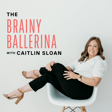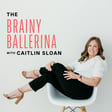
15. Fostering Mental Wellness Through Community with Danscend
Kristin Deiss and Michelle Loucadoux, the founders of Danscend, are on a mission to bring mental wellness to the forefront of dance training by providing a space for education, application, and community to dancers, educators, and professionals.
In this episode, we talk allllll the things mental wellness. Everything from finding balance, to dealing with negative self talk and forging an identity outside of being a dancer. We dive into the power of community and the importance of feeling supported in your dance career. Kristen and Michelle are incredibly open in sharing their stories and tools to help you better navigate the world of dance.
Key Moments:
- Kristin & Michelle’s dance background [2:17]
- How Danscend was born [6:25]
- Finding balance and setting boundaries [9:03]
- The importance of finding the fun in dance [18:23]
- Kristin and Michelle’s biggest struggles with mental health throughout their dance journey [21:31]
- Tools for dancers struggling with negative self-talk [27:35]
- Tools to help dancers discover their identity outside of being a dancer [33:10]
- The power of community for dancers [38:17]
- Their biggest piece of advice for dancers pursuing a career [49:45]
Connect with Danscend:
THEIR WEBSITE: danscend.com
INSTAGRAM: instagram.com/danscendoffical
Links and Resources:
Click here for one FREE month of Danscend’s Council for Educators with code BRAINY
Set up ticketing for your next event with DRT (Make sure to mention that The Brainy Ballerina sent you!)
1-1 Career Mentoring: book your complimentary career call
Let’s connect!
My WEBSITE: thebrainyballerina.com
INSTAGRAM: instagram.com/thebrainyballerina
Questions/comments? Email me at [email protected]

